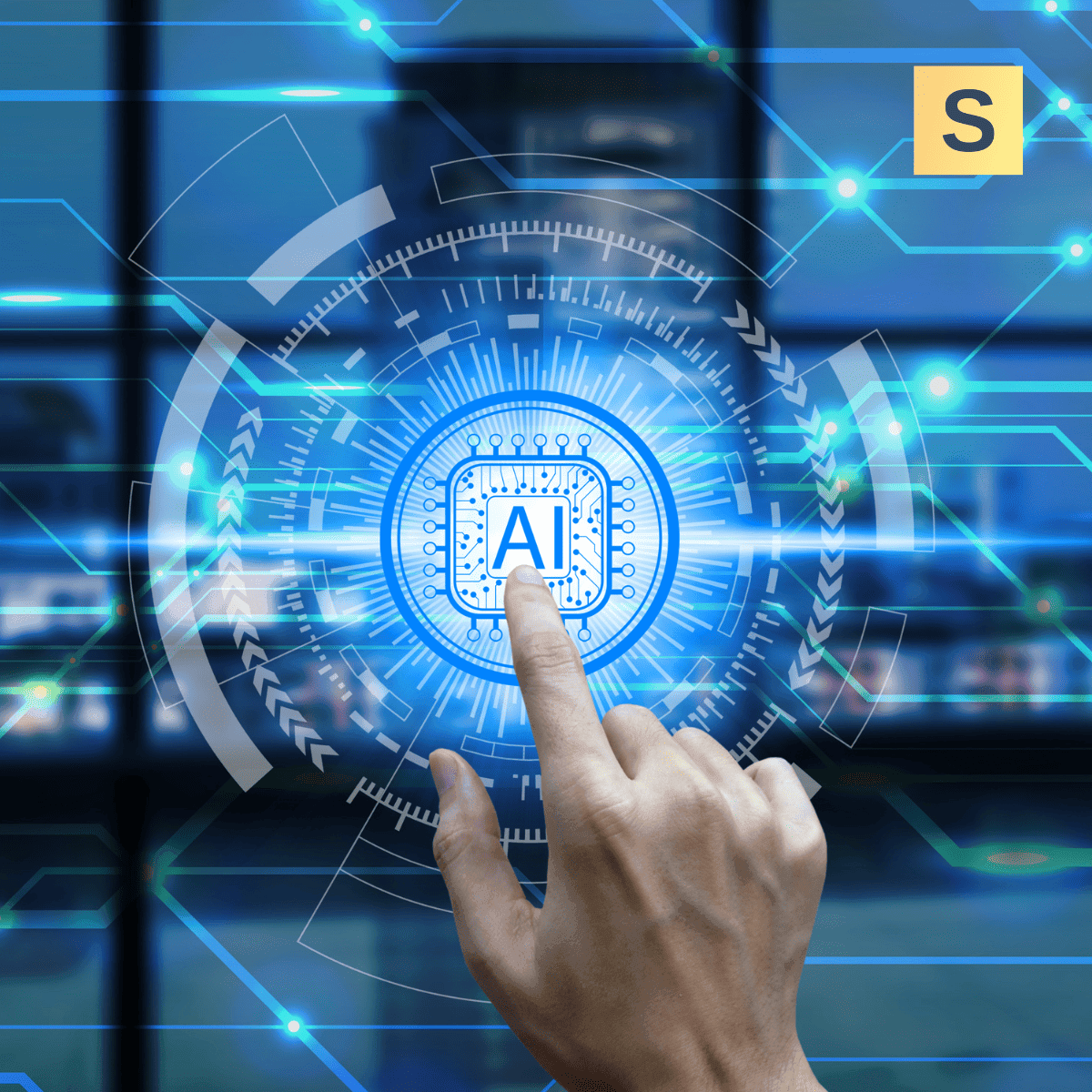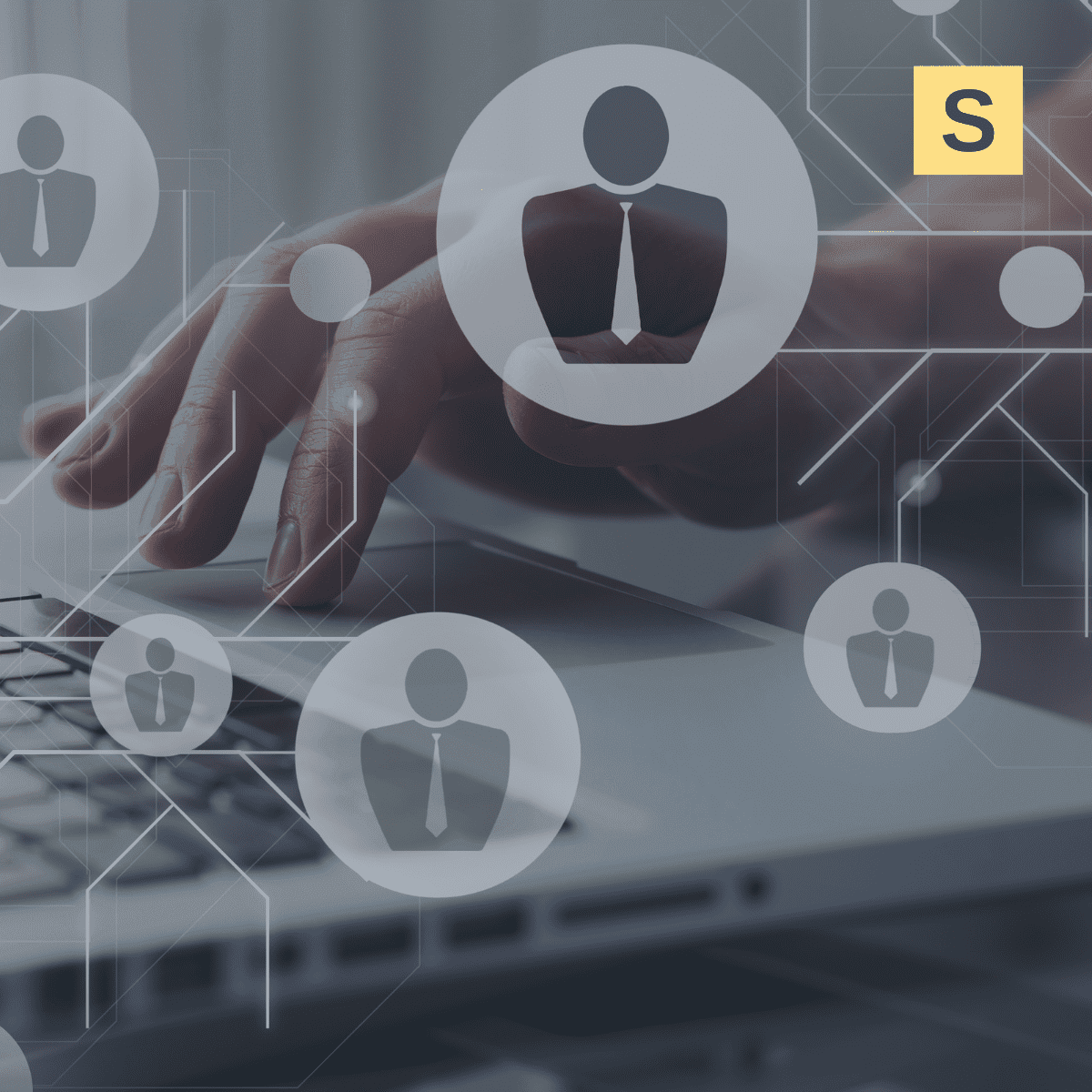Key Takeaways:
- Modern organizations expect HR software products to deliver hyper-personalized, integrated solutions that cover every stage of the employee lifecycle.
- The rise of AI and data analytics is forcing companies to modernize legacy systems that were not built to support modern technologies.
- AI-powered capabilities help organizations streamline HR management and are highly requested in modern HR systems.
The HRTech landscape is changing fast. New technologies are reshaping how companies hire, support, and retain people. HR platforms play a key role in this shift, offering tools and intelligence that help organizations operate more effectively.
In this article, we explore the top HR technology trends shaping 2026, based on industry research, market insights, and hands-on Seedium’s experience in building HRTech software products.
Latest Trends in the HR Technology Market 2026
The global HR technology market is expected to grow from $43.66 billion in 2025 to $81.84 billion by 2032, with a projected CAGR of 9.2%. More than 72% of global enterprises already use digital HR systems to support recruitment, performance management, and workforce planning.
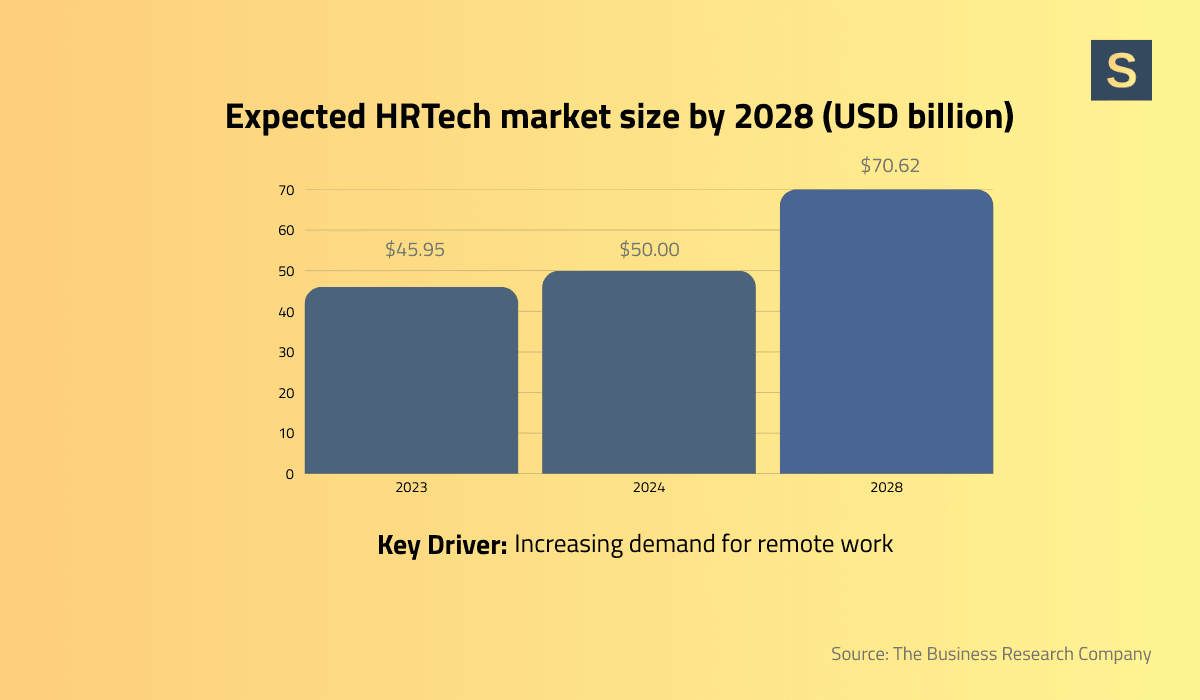
Today, organizations expect HR software solutions to cover every stage of the employee lifecycle, including hiring, performance management, learning, well-being, and workforce planning. As work models evolve and DEIB initiatives expand, companies need HR technologies that help them stay adaptable, competitive, and people-focused.
At the same time, many organizations face ongoing challenges when implementing such modern platforms. Legacy systems, fragmented data, complex integrations, and rising security risks continue to slow transformation efforts. This leads HR product developers to focus on building unified platforms that reduce complexity and accelerate innovation.
Trend #1: Upgrading Legacy Systems to Adopt Innovations
As AI adoption increases, many HR systems are showing their limitations. Older platforms were not built to support modern data flows, integrations, or automation, which makes system modernization a growing priority.
Industry research shows a clear move away from traditional HR cores. Around 69% of organizations already use SaaS or hybrid cloud HR technology, with adoption expected to reach 83% by 2027. When a full replacement is not possible, companies modernize in stages by integrating legacy systems with SaaS HR tools through APIs or connecting them to composable cloud platforms. This approach improves visibility and functionality without a full system rebuild.
These changes also affect what companies expect from HR technology providers. Modern SaaS platforms must offer simple interfaces, strong integrations, and regular updates without disruption. Clients now expect flexible migration options and long-term platform growth. Providers that fail to modernize risk losing relevance as HR systems move toward modular, cloud-based architectures.
Trend in Action
Seedium partnered with Cultcha to modernize its HR cultural intelligence platform, rebuilding its SaaS architecture to improve performance, scalability, and user experience. The modernization efforts helped the platform reduce legacy code, streamline deployments, and add modules designed to support future AI-driven capabilities.
Read the full case study here.
Trend #2: Automating the Recruitment Process with AI
AI makes hiring faster and more data-driven. AI tools can review large talent pools in seconds. It was found that 88% of companies now use AI for initial candidate screening, significantly reducing the time to find the right candidates.
Automation also handles tasks such as writing job descriptions, interview scheduling, and candidate follow-ups. This gives HR teams more time to focus on people.
Additionally, AI helps organizations stay proactive. Systems can highlight candidates who are more likely to become a good fit or stay longer based on past hiring data.
Trend in Action
More and more HR and recruitment platforms are adopting AI functionality as a core or additional feature. For example, Seedium partnered with Supamatch to build AI Ignition, an AI-powered resume builder that helps users create ATS-friendly resumes and cover letters. The platform uses AI to analyze skills, improve content quality, and support better job matching.
Another project involved building a custom recruitment platform that centralizes sourcing, hiring, workforce management, and analytics in a single system. The solution streamlined the full recruitment lifecycle, improved visibility into hiring operations, and helped companies hire up to two times faster through AI-powered features such as AI-assisted job description optimization, interview question generation, and predictive analytics.
Read also: AI in Human Resources: Use Cases and Implementation
Trend #3: Cloud Technology to Support Remote Work
As work models continue to evolve, cloud HR platforms play a central role in modern workforce management. Nearly 46% of businesses report measurable value from adopting HR SaaS, including faster processes and improved performance. Cloud and SaaS HR systems centralize employee data and automate hiring, onboarding, payroll, and benefits management. These tools give both employees and HR teams secure access to HR services from anywhere.
Cloud-based platforms also support faster updates, easier integrations, and flexible scaling as organizations grow. Companies can adapt workflows, expand into new regions, and introduce new tools without rebuilding core systems. This makes cloud HR technology easier to maintain and ready for long-term change.
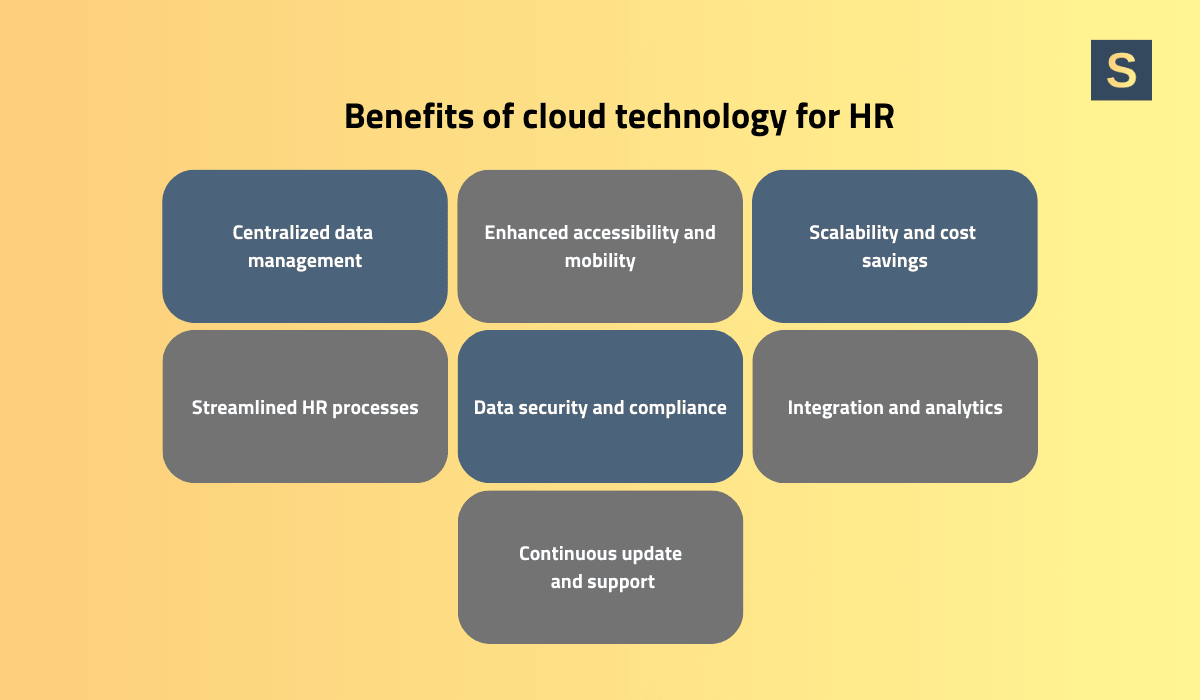
Key benefits of cloud HR platforms include:
- Centralized employee data across teams and locations
- Remote access for HR teams and employees
- Faster system updates without downtime
- Easy integration with payroll, finance, and analytics tools
- Scalable architecture that supports company growth
Read also: Building SaaS applications to learn how modern cloud platforms are designed for scalability, security, and long-term growth.
Trend #4: Training and Mentoring Platforms for Employee Upskilling
Automation is changing how people work. As a result, employee development has become a key HR priority. Companies use mentoring platforms, LMS systems, and AI learning tools to close skills gaps and retain talent.
Modern upskilling platforms go beyond course libraries. They track employee skills and highlight gaps. The systems recommend training based on role needs. AI helps align learning with business goals, connect employees with the right mentors, and support internal mobility instead of external hiring.
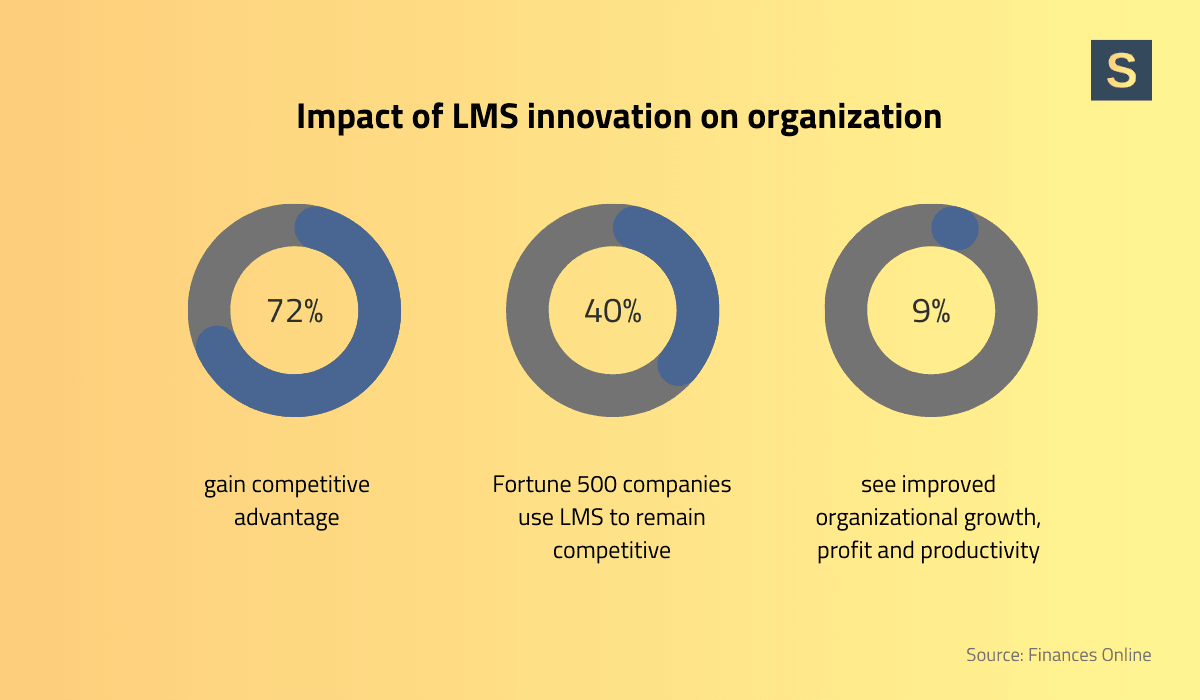
These tools also give HR teams better visibility into skill readiness and succession planning. With 94% of employees more likely to stay when companies invest in development, learning platforms now play a direct role in retention and workforce planning.
Trend in Action
Integrated HRIS/LMS platforms such as Bamboo or Workday combine core HR functionality with learning modules. This gives staff a seamless interface for HR tasks and learning in one place, enabling a stronger employee experience.
Trend #5: Increased Focus on Mental Health Technologies
Supporting employee mental health has become a core part of HR strategy. Modern well-being platforms provide access to teletherapy, mood tracking, stress management programs, and digital courses focused on emotional resilience.
These tools often integrate with HRM systems. This allows companies to view well-being data alongside workload and productivity metrics. Many platforms also help spot early signs of burnout, absenteeism, or disengagement. This makes it easier to offer support early instead of reacting after problems appear.
To protect employee trust, most solutions rely on anonymized and aggregated data. With corporate adoption growing by 70% in the past two years, mental health technologies are now seen as long-term infrastructure that supports retention, engagement, and sustainable performance.
Trend #6: The Rise of Employee Experience Platforms (EXP)
Employee Experience Platforms bring communication, learning, benefits, and feedback tools into one digital space. Their goal is to improve engagement, satisfaction, and productivity by giving employees a consistent and easy-to-use experience.
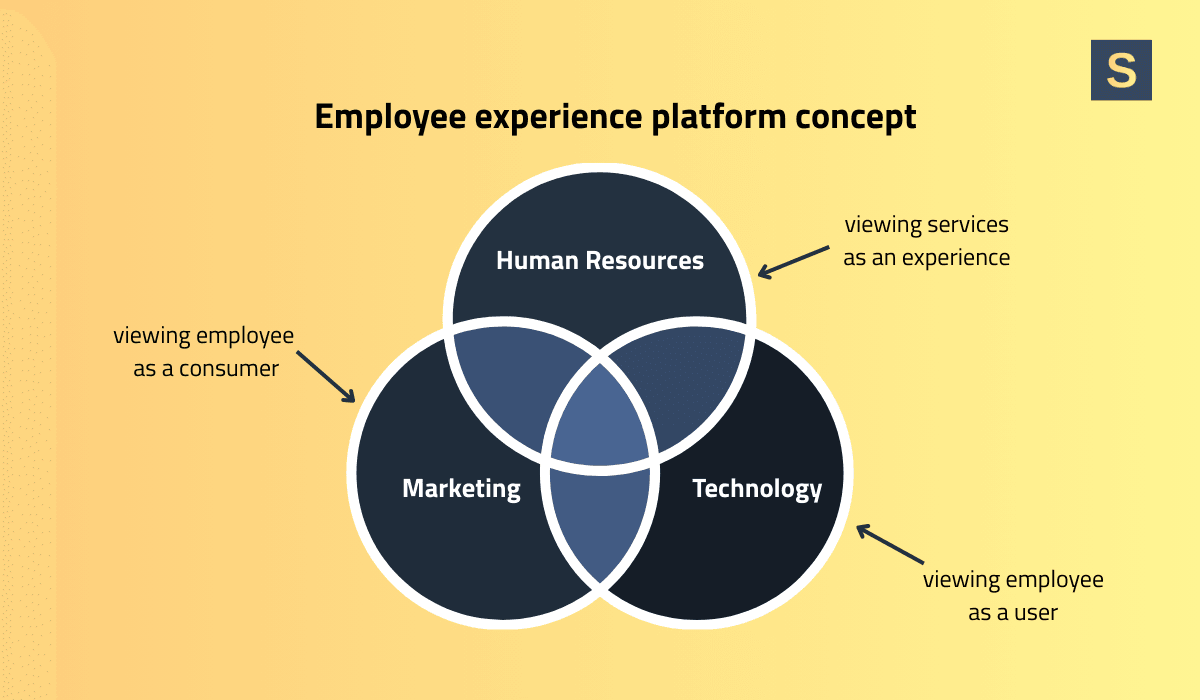
A common example is Microsoft Viva, which integrates with Microsoft 365. It provides access to learning content, guidance on work-life balance, career development tools, and wellness resources.
Modern EXP platforms also help companies gather continuous feedback, measure engagement trends, and support hybrid work. By centralizing daily employee interactions, these systems reduce tool fatigue and improve communication across teams. According to Gallup, companies using employee experience platforms report 59% lower turnover and 41% higher productivity.
If you want to learn more about building employee experience platforms or similar HR solutions, read our guide on the custom HR software development process.
Trend #7: Internal Talent Marketplaces to Improve Talent Allocation
Internal talent marketplaces help companies use their workforce more effectively. These platforms match employees to internal projects, open roles, or short-term tasks based on skills, experience, and interests. As a result, teams can fill gaps faster and reduce dependence on external hiring. Today, 76% of large companies already use internal talent platforms.
Modern marketplaces go beyond job matching. They provide clear visibility into employee skills, support short-term project staffing, and encourage continuous development through internal mobility. Many platforms also use AI to recommend opportunities and help employees grow while keeping critical knowledge inside the organization.
Trend in Action
At Seedium, we helped one of our clients develop OpenCulture, a platform that supports growth, transparency, and internal mobility. The solution helps companies reduce external hiring costs, improve talent utilization, and strengthen employee retention.
Trend #8: Empowering DEIB Initiatives through Data Insights
Companies increasingly use HR analytics and dedicated DEIB platforms to track workforce diversity indicators such as gender, ethnicity, age, pay equity, and career progression.
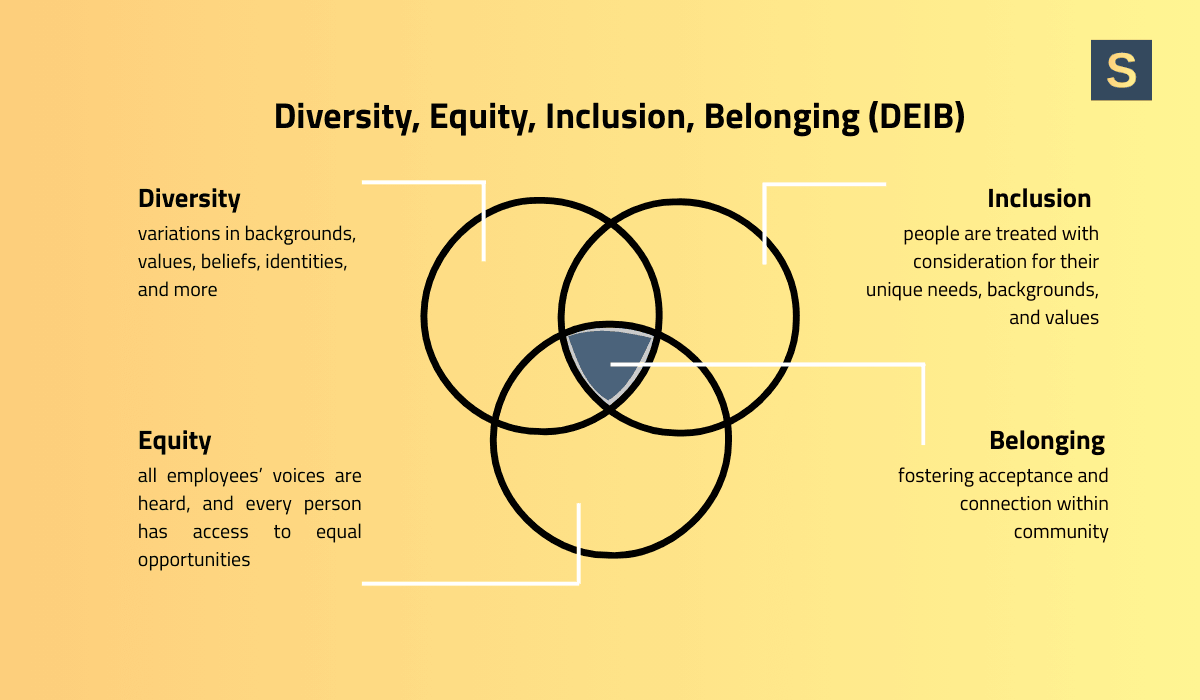
Modern DEIB dashboards visualize data across hiring, retention, promotion, and employee engagement. This helps organizations spot gaps, detect bias, and address issues with targeted actions instead of assumptions.
These capabilities are now expected in HR technology built around modern best practices. According to McKinsey, companies in the top quartile for ethnic diversity show an average 27% financial advantage over less diverse peers. As a result, data-driven DEIB tools play a growing role in both workforce strategy and long-term business performance.
Trend #9: People Analytics to Streamline HR Processes
People analytics helps HR teams turn data into clear insights. Instead of relying on intuition, companies can make decisions based on real workforce information. Analytics platforms highlight risks such as high turnover, low engagement, skills gaps, and future hiring needs. In 2024, 70% of HR leaders named people analytics a top talent management priority.
AI takes people analytics further. It uses past data to predict future outcomes. These tools help identify strong hiring profiles, improve workforce planning, and support better HR budget decisions. Advanced systems can also spot early signs of attrition or role mismatch. This allows HR teams to act before issues grow.
Predictive analytics for HR has grown by almost 50% over the last three years. Platforms with built-in analytics and forecasting give companies a stronger base for planning, performance tracking, and long-term workforce decisions.
Read also: How to Build a Data Analytics Platform
Trend #10: Addressing Cybersecurity Threats
As HR processes become more digital and store sensitive employee data, cybersecurity has become a top priority. Modern HR platforms now include multi-layer encryption, two-factor authentication, access controls, and built-in compliance features. With the average cost of a data breach in HR systems reaching $4.56 million, investing in data protection is a must.
Security, however, goes beyond built-in features. HR systems must be updated regularly to reduce exposure to new threats. Ongoing monitoring and prevention help protect both employee data and business operations. Key cybersecurity practices in HR technology include:
- Regular software updates to close known vulnerabilities
- Role-based access controls to limit data exposure
- Continuous security scanning to detect threats early
- Secure API integrations between HR and third-party tools
- Employee security awareness training to reduce human error
As HR ecosystems grow more connected, strong cybersecurity practices help maintain trust, meet compliance requirements, and reduce operational risk.
What is the Future of HR Technology?
The worldwide HRTech market is expected to grow, driven by the fast pace of digital transformation, solution integration, and cloud-based human capital management. The future of this field is shifting toward hyper-personalized, employee-first ecosystems in which every detail of the employee experience is amplified through data, automation, and intelligent systems.
Key areas are:
- Artificial intelligence-based decision support tools and agents that help HR leaders with talent management, workforce planning, and predictive analytics.
- Integrated employee well-being platforms that unify mental health assistance, work-life balance tools, and stress management resources into a single experience.
- Cloud-native, elastic HR systems that natively support remote and hybrid teams, with scale- and availability-based security.
- Strategic employee analysis and external talent marketplaces to enable wiser, quicker deployment of talent and internal mobility, and real-time business responsiveness to evolving market needs.
- Advanced cybersecurity solutions that are specifically crafted to protect confidential organization and employee data in an increasingly digital world.
If you have an HR software product in mind or wish to modernize an existing system, Seedium can assist you with expertise in recruiting platforms, AI-driven HR tools, and internal talent marketplaces. Check out our HR software development services and contact us to discuss your project.


